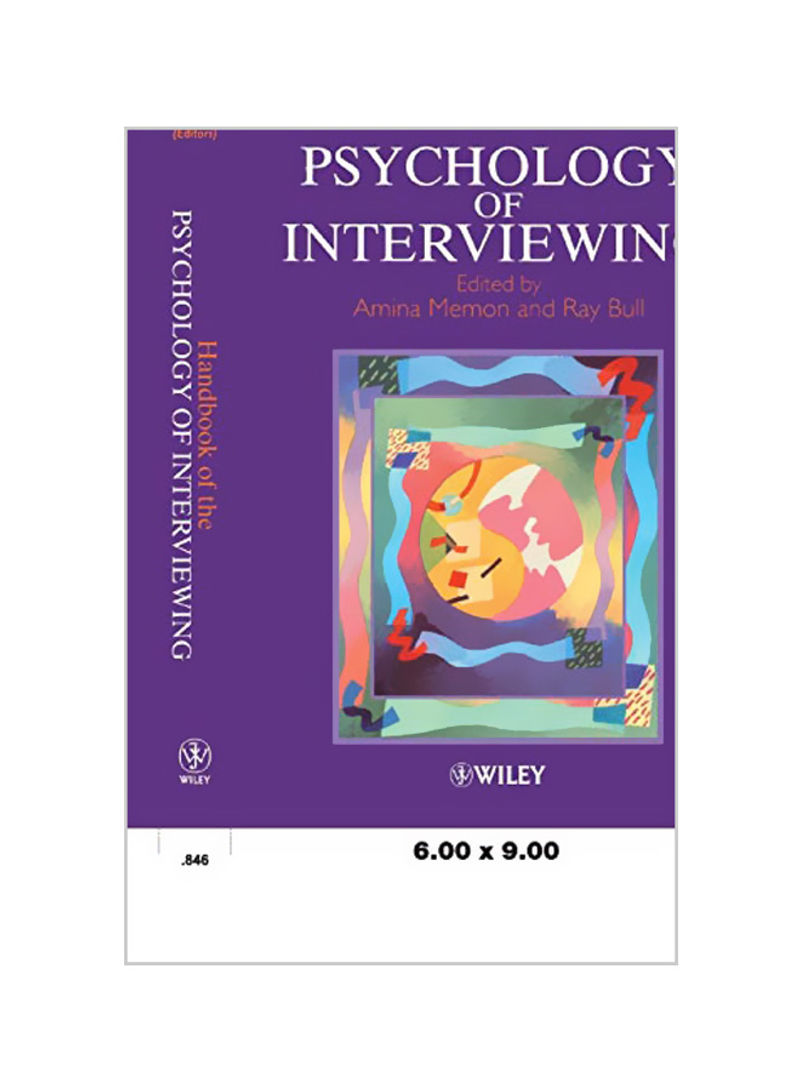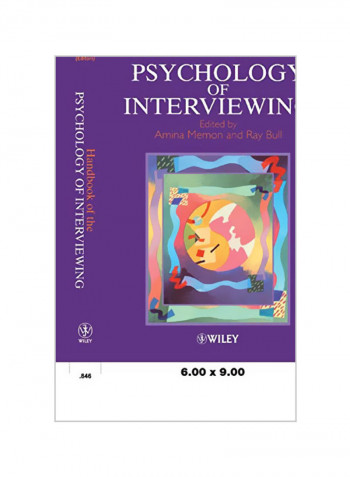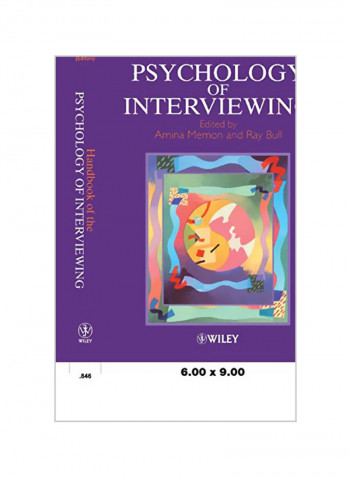Handbook Of The Psychology Of Interviewing Hardcover
Recommend
Sort by
Rating
Date
Specifications
Author 1
Amina A. Memon
Book Description
The interview is one of the most used methods within psychology, and effective interviewing skills can be one of the most useful qualities you can possess. This Handbook provides an authoritative text on the psychology of interviewing,reviewing diagnosis and assessment in several contexts, such as: social, medical, forensic and occupational. Each chapter explores issues of methodology, theory,development and practice. Written in an easy-to-understand style it will be accessible to a range of practitioners including psychologists, psychiatrists, social workers, doctors and lawyers. NEW PAPERBACK VERSION - The first and only handbook on the psychology of interviewing. - Professional guidance for anyone who needs interviewing skills -social workers,market researchers,therapists etc. - Presents breath of knowledge by covering a wide range of interviewing techniques and contexts. - Well-known editors,and a lead editor with extensive publishing experience.
Language
English
Publisher
Wiley
Number of Pages
380
About the Author
Dr. Amina Memon is a Senior Lecturer in Psychology at the University of Aberdeen. She has a first-class degree in psychology (1982) and a Ph.D. in psychology (1985). Her main areas of expertise are social and cognitive psychology. Dr. Memon has published widely on topics such as the investigative interviewing of child witnesses, police interviews, face recognition, eyewitness identification, the performance of elderly witnesses, false memories and jury decision making. Between 1991 and 1997. Dr. Memon conducted extensive psychological research on procedures for interviewing child witnesses for the purpose of obtaining complete and accurate witness reports. Professor Ray Bull is Professor of Forensic Psychology at the University of Portsmouth. His main areas of expertise are police interviewing and the relationship between physical appearance and criminality, topics on which he has published extensively. He is regularly invited to present seminars and lectures to police audiences in many countries. His most recent externally funded research project was from the Innovative Research Challenge Fund of the Home Office for work on improving children's face recognition performance.



